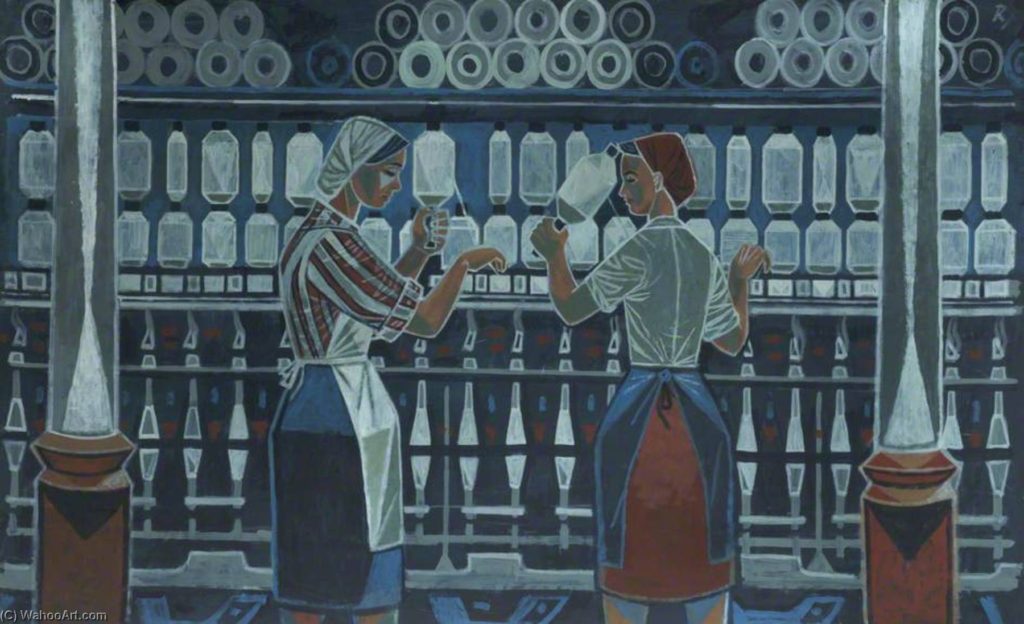
Monday – Labor Day
I can think of few poems that better capture the spirit of Labor Day than Daniel Pinsky’s “The Shirt.” I love how it moves seamlessly—I use the adverb deliberately—between the craft of labor and the conditions of labor. Sometimes we see a lovingly described piece of clothing, sometimes we hear about the bloody history of textile manufacturing.
The poem reminds me in this respect of Pablo Neruda’s poem about Machu Picchu, which also toggles between a remarkable creation and the blood that was spilled constructing it.
As you read “The Shirt,” be alert to words that can function as puns, such as “yoke” in the context of shirts fabricated in sweatshops. When the textile terms sound particularly violent (“the presser, the cutter, the wringer, the mangle”), we see them followed by an account of the 1911 Triangle Shirtwaist Factory fire, where workers threw themselves off the building when they couldn’t escape through padlocked exit doors.
Pinsky also alludes to Britain’s bloody history with Scotland and to American slavery. I don’t understand the reference to George Herbert but know that the poet wrote “The Collar” so perhaps that’s the link to southern black textile workers.
The characters mentioned in the final stanza are both the lettering on the shirt and the figures in the labor drama. In fact, all the nouns in the final stanza could refer to both the garment and the workers.
The back, the yoke, the yardage. Lapped seams,
The nearly invisible stitches along the collar
Turned in a sweatshop by Koreans or Malaysians
Gossiping over tea and noodles on their break
Or talking money or politics while one fitted
This armpiece with its overseam to the band
Of cuff I button at my wrist. The presser, the cutter,
The wringer, the mangle. The needle, the union,
The treadle, the bobbin. The code. The infamous blaze
At the Triangle Factory in nineteen-eleven.
One hundred and forty-six died in the flames
On the ninth floor, no hydrants, no fire escapes—
The witness in a building across the street
Who watched how a young man helped a girl to step
Up to the windowsill, then held her out
Away from the masonry wall and let her drop.
And then another. As if he were helping them up
To enter a streetcar, and not eternity.
A third before he dropped her put her arms
Around his neck and kissed him. Then he held
Her into space, and dropped her. Almost at once
He stepped to the sill himself, his jacket flared
And fluttered up from his shirt as he came down,
Air filling up the legs of his gray trousers—
Like Hart Crane’s Bedlamite, “shrill shirt ballooning.”
Wonderful how the pattern matches perfectly
Across the placket and over the twin bar-tacked
Corners of both pockets, like a strict rhyme
Or a major chord. Prints, plaids, checks,
Houndstooth, Tattersall, Madras. The clan tartans
Invented by mill-owners inspired by the hoax of Ossian,
To control their savage Scottish workers, tamed
By a fabricated heraldry: MacGregor,
Bailey, MacMartin. The kilt, devised for workers
To wear among the dusty clattering looms.
Weavers, carders, spinners. The loader,
The docker, the navvy. The planter, the picker, the sorter
Sweating at her machine in a litter of cotton
As slaves in calico headrags sweated in fields:
George Herbert, your descendant is a Black
Lady in South Carolina, her name is Irma
And she inspected my shirt. Its color and fit
And feel and its clean smell have satisfied
Both her and me. We have culled its cost and quality
Down to the buttons of simulated bone,
The buttonholes, the sizing, the facing, the characters
Printed in black on neckband and tail. The shape,
The label, the labor, the color, the shade. The shirt.
Applaud labor’s products while decrying labor’s harsh conditions. Happy Labor Day.